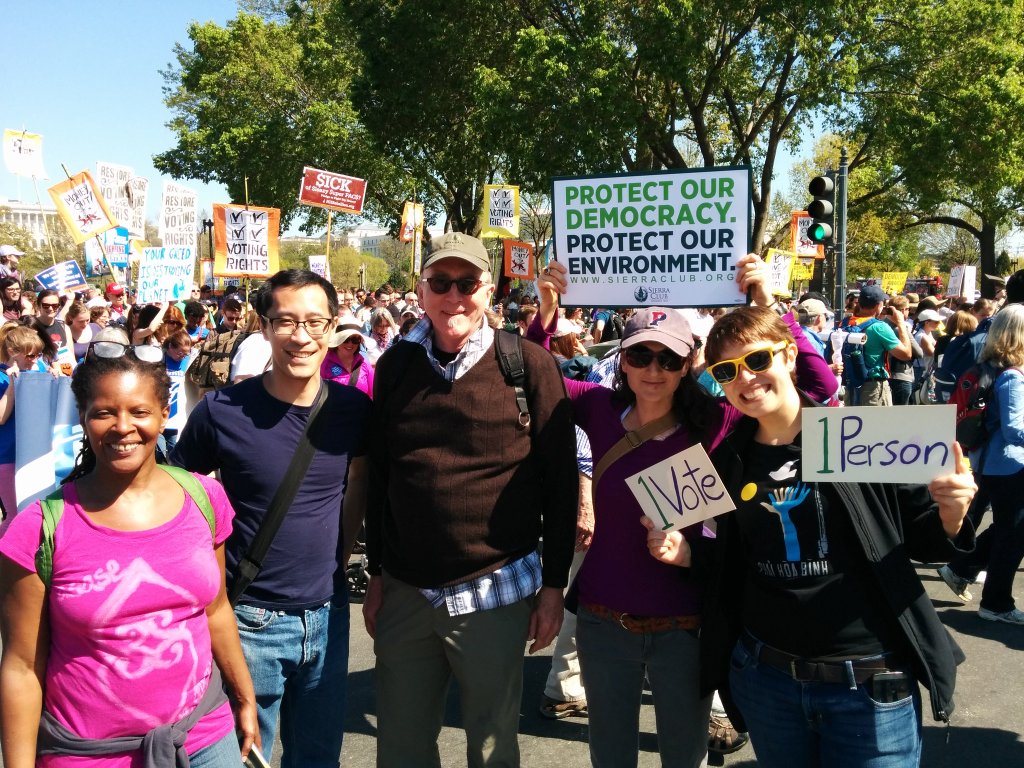Sadly, there is much to be afraid of as we see the policies of the new administration roll out. Immigrants, Muslims, transgender youth have all seen attacks, and this is only the beginning of how the new administration’s policies are impacting people in our communities.
The things we don’t have to be afraid of are protesting, fighting back, and advocating against these onerous policies. As nonprofits committed to social justice, it is our place—and responsibility—to challenge these actions.
Still, I have often seen confusion among some nonprofits about what we can and cannot do while still maintaining our 501(c)3 status. Below is a brief description of activities, with some do’s and don’ts.
Electioneering
Electioneering is offering support to a candidate running for office. Historically — and still — 501(c)3 organizations cannot engage in this activity. This does not mean that nonprofit staff, board and volunteers can’t participate in their personal capacity. Staff can contribute money, can participate in (or even organize) candidate fundraisers and meet and greet opportunities. Staff can co-sponsor candidate events, although if you include your nonprofit affiliation, you need to have language that says “for identification purposes only”.
You cannot use any of the resources of your nonprofit to help a candidate — that means, among other prohibitions, it should be outside of work hours, you need to use your personal email and phone number, and cannot use work-related email lists.
President Trump has talked about changing this prohibition in the context of allowing churches to endorse political candidates. Stay posted—this could all change.
Lobbying
Lobbying means working to influence a specific piece of proposed legislation. Thus, educating (ie talking with) legislators about the importance of people having access to bathrooms consistent with one’s gender identify is not lobbying. Asking legislators to vote for a specific piece of legislation that guarantees transpeople can use the appropriate bathroom is lobbying.
501(c)3 organizations can lobby. However, that cannot be a substantial part of the nonprofit’s work. For organizations that do a minimal amount of lobbying, the dollars expended need to be noted, but no further action is needed. Organizations that do substantial lobbying might want to apply for a 501(h) election. A 501(h) election gives organizations a formula for determining how much of their expenditures can go to lobbying. You can find more information at this website.
Advocacy
Here is where there is so much room and opportunity. As 501(c)3 organizations, we can do all of the advocacy we desire. This includes protesting against policies we think are bad and supporting the policies we think are good. We can educate our communities, our elected officials, our appointed officials about our issues. We can tell our constituents which elected official supports our issues and which ones oppose them. We can meet with candidates for public office to help them better understand our work and our goals. The space for advocacy is large and we should take as much as we can.
Yes, these are uncertain times, but by following these guidelines, nonprofits should not be afraid to join others in fighting back.
Resources
- Center for Nonprofit Excellence Resources on Advocacy
https://www.centerfornonprofitexcellence.org/resources/advocacy - Nonprofit Political Activity: Lobbying & Political Activity
https://www.independentsector.org/policy/policy-issues/political-activity-rules/ - American Bar Association: Nonprofits and Lobbying
https://apps.americanbar.org/buslaw/blt/2009-03-04/mehta.shtml - Political Campaign Activities — Risks to Tax-Exempt Status
https://www.councilofnonprofits.org/tools-resources/political-campaign-activities-risks-tax-exempt-status - The Restriction of Political Campaign Intervention by Section 501(c)(3) Tax-Exempt Organizations
https://www.irs.gov/charities-nonprofits/charitable-organizations/the-restriction-of-political-campaign-intervention-by-section-501-c-3-tax-exempt-organizations - A 501(c)(3) Guide to Nonpartisan Voter Engagement
http://www.nonprofitvote.org/nonprofits-voting-elections-online/introduction/
